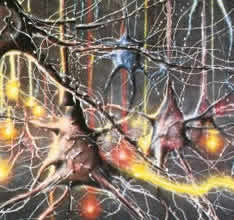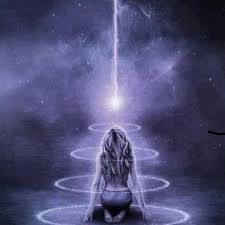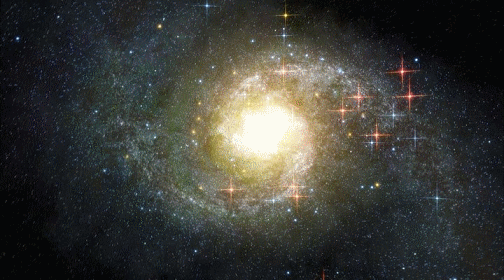T he concept of human freedom of will is surrounded by the most diverse views.
On the one hand, some of our most widespread religions and mythological world views emphasize the fact of man's free will, whereas other views postulate a clear determination. Thus, those beliefs that are based on the idea of the eternal law of the world (such as Hinduism and Buddhism) justify the respective existence shaped by the different dependencies of man. This thought makes man seem at first at the mercy of his fate, and thus the Hindu view of the caste system, which lets people be bound to the same social class for their whole lives by virtue of their respective birth, is significantly justified.
In contrast to this Hindu determinacy of man, Gautama Buddha, who regarded the caste system as an institution created by man and therefore rejected it, stood in contrast to the Hinduism. Nevertheless, the foundations of Buddha's teaching were based on the idea of the eternal world law, which is characterized by cause-and-effect relationships and rejects an eternal, absolute creator God.
These views are opposed by the monotheistic religions (e.g. Judaism, Christianity, Islam), which recognize creation as being created by an author.
If both fundamental views are considered from the point of view of possible free will, different conclusions can be drawn.
The monotheistic approach of man's "fall from grace" cannot be seen without the fundamental fact of freedom of choice. Here, however, the critical and undogmatic eye may ask the question why the Creator first gave the possibility of choice in principle, and then - following the respective dogmatic - to punish the decision that in "his" eyes was wrong - and this, moreover, with "clan-like" ("up to the seventh member"). This conception of the human spirit as creator is, in my view, based on an insufficiently thought-out assumption, which the theological teachers are also expected to recognize as "truth". "I have created you in my own image" does not imply the projection of human behavior in reverse to God. This would be a syllogism (false inversion: every fox has a tail - everything that has a tail is a fox).
Approaching the truth of God from a religious-dogmatic (i.e. human) point of view always and immediately entails incompleteness, if one follows the thought that there is only ONE way to the truth. And yet, religious "leaders" all over the world presume to spread the eternal truth (and each one of them, according to his respective faith, also the only true one). The possible sense of free will thus would be undermined and thus useless - because non-existent.
If we turn to modern knowledge in the field of consciousness research, brain anatomy and biological mechanisms of action at the cerebral level, the latest findings in these fields indicate that biological organisms (like humans) are bound in their decisions. The functional connections of a biochemical-electrical nature seem to indicate that it is not exclusively the mind that guides the body, but that the interactions between the two also occur in the opposite direction. So are our mental functions in truth determined by respective biochemical processes of the organism?
brain anatomy and biological mechanisms of action at the cerebral level, the latest findings in these fields indicate that biological organisms (like humans) are bound in their decisions. The functional connections of a biochemical-electrical nature seem to indicate that it is not exclusively the mind that guides the body, but that the interactions between the two also occur in the opposite direction. So are our mental functions in truth determined by respective biochemical processes of the organism?
Conditionally. The fact that certain states of consciousness are dependent on e.g. hormones or neurotransmitters cannot be denied. This circumstance does not need to be explained using the example of psychotropic drugs; the example of intoxication suffices to illustrate this. The altered neuronal processes - based on the different biochemical-electrical reactions triggered by intoxication - of the brain speak a clear language in the experience of the individual.
Consciousness can therefore be determined by physicality. The idea of interdependent interaction seems to me to be the most suitable one, i.e. both forms of being (consciousness and body - software and hardware) are mutually dependent and are in reactive communication.
A further possible indication of the conditionality of man has been offered by astrology since ancient times. The idea that human existence is determined by the respective constellation of the nearer stars appears in history in almost all human cultures, communities and generations. This notion exists in space AND time; therefore, it should not be excluded as a potential possibility, but rather be subject to individual consideration.
The idea that human existence is determined by the respective constellation of the nearer stars appears in history in almost all human cultures, communities and generations. This notion exists in space AND time; therefore, it should not be excluded as a potential possibility, but rather be subject to individual consideration.
In summary, I have the impression that the mutual relationships between body, mind and soul follow certain laws and are therefore predictable. This circumstance thus justifies the existence of cognitive psychology, for example, and on the other hand implies the motive of the "predetermination" of all existence. This therefore implies a synthesis between Far Eastern religious tradition and scientific proof. Here, religions illuminate the macro-perspective view of existence, while the sciences may lead the proof of religious conception quasi from the inner view. Both approaches do not contradict each other at all, but rather complement each other. This underlines the importance of a necessary intensified dialogue between the religions and the sciences.
Gautama Buddha recognized these mechanisms and thus founded his all-encompassing conditionalism - based on cause and effect.
""Man is thrown into his time" "
Martin Heidegger
"He who feels the bondage of the will is insane - he who denies it is stupid."
Friedrich Nietzsche
 free will
free will 